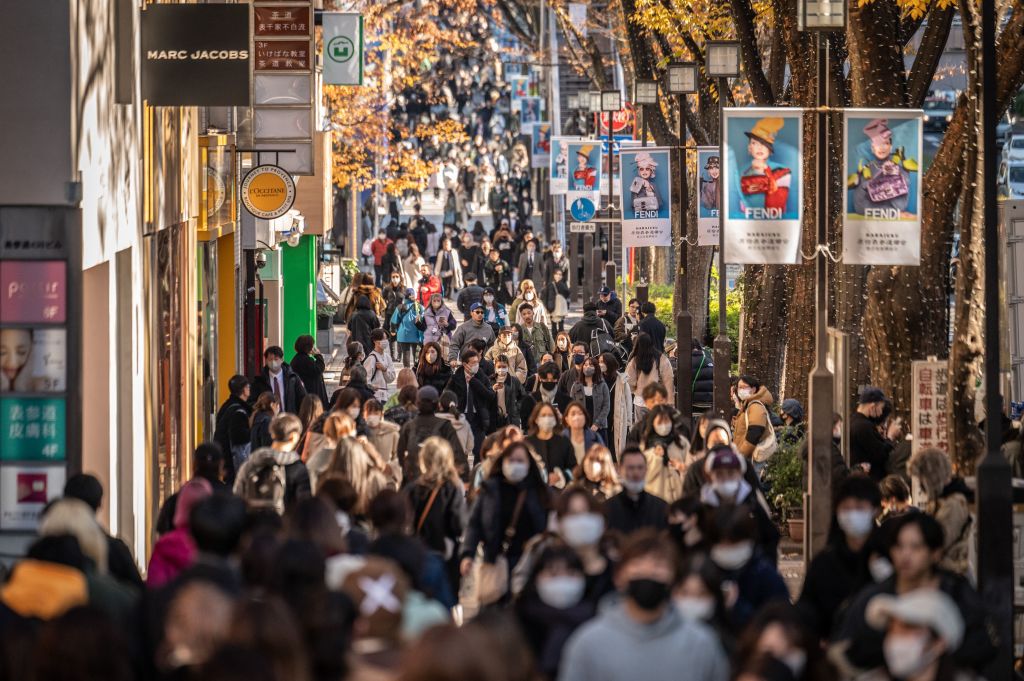Japan to offer families 1 million yen per child to relocate from overcrowded Tokyo


A free daily email with the biggest news stories of the day – and the best features from TheWeek.com
You are now subscribed
Your newsletter sign-up was successful
The Japanese government is offering families 1 million yen (~$7,700) per child if they move out of Tokyo, the country's capital, CNN reports. The incentive is part of an effort to get residents to leave the city to revitalize rural regions heavily impacted by the country's falling birth rate.
A spokesperson from the central government said that starting in April, couples with children and single parents will be eligible to receive the relocation benefits if they move out of the Toyko metropolitan area to less densely populated areas around the country, per CNN. The forthcoming financial incentive is more than triple the 300,000 yen (~$2,300) the government currently offers families who relocate.
Officials hope the scheme will help reverse the effects of the country's struggling fertility rate while diversifying rural areas with a rapidly aging population of senior citizens. In 2021, the Statistics Bureau of Japan found that 28.9 percent of the country's total population was at least 65 years old, a record high, per CNBC. That same year, 0-14-year-olds accounted for just 11.8 percent of the population, the lowest number ever recorded in the country.
The Week
Escape your echo chamber. Get the facts behind the news, plus analysis from multiple perspectives.

Sign up for The Week's Free Newsletters
From our morning news briefing to a weekly Good News Newsletter, get the best of The Week delivered directly to your inbox.
From our morning news briefing to a weekly Good News Newsletter, get the best of The Week delivered directly to your inbox.
Experts say the growing number of young people migrating from the countryside to crowded cities like Tokyo is playing a significant role in Japan's demographic crisis, per CNN. They believe urban Japanese couples are choosing not to have kids because of the skyrocketing cost of city living, the limited space, and the lack of urban childcare facilities. Rural regions, meanwhile, are left with fewer residents and millions of unoccupied residences.
The incentivized relocation campaign began in 2019 and is growing in popularity, albeit very slowly. In 2021, 1,184 families accepted the money to relocate, compared with 71 families in the program's inaugural year. However, that's still quite a ways away from the government's goal of relocating 10,000 people by 2027.
A free daily email with the biggest news stories of the day – and the best features from TheWeek.com
Theara Coleman has worked as a staff writer at The Week since September 2022. She frequently writes about technology, education, literature and general news. She was previously a contributing writer and assistant editor at Honeysuckle Magazine, where she covered racial politics and cannabis industry news.
-
 Local elections 2026: where are they and who is expected to win?
Local elections 2026: where are they and who is expected to win?The Explainer Labour is braced for heavy losses and U-turn on postponing some council elections hasn’t helped the party’s prospects
-
 6 of the world’s most accessible destinations
6 of the world’s most accessible destinationsThe Week Recommends Experience all of Berlin, Singapore and Sydney
-
 How the FCC’s ‘equal time’ rule works
How the FCC’s ‘equal time’ rule worksIn the Spotlight The law is at the heart of the Colbert-CBS conflict
-
 Nobody seems surprised Wagner's Prigozhin died under suspicious circumstances
Nobody seems surprised Wagner's Prigozhin died under suspicious circumstancesSpeed Read
-
 Western mountain climbers allegedly left Pakistani porter to die on K2
Western mountain climbers allegedly left Pakistani porter to die on K2Speed Read
-
 'Circular saw blades' divide controversial Rio Grande buoys installed by Texas governor
'Circular saw blades' divide controversial Rio Grande buoys installed by Texas governorSpeed Read
-
 Los Angeles city workers stage 1-day walkout over labor conditions
Los Angeles city workers stage 1-day walkout over labor conditionsSpeed Read
-
 Mega Millions jackpot climbs to an estimated $1.55 billion
Mega Millions jackpot climbs to an estimated $1.55 billionSpeed Read
-
 Bangladesh dealing with worst dengue fever outbreak on record
Bangladesh dealing with worst dengue fever outbreak on recordSpeed Read
-
 Glacial outburst flooding in Juneau destroys homes
Glacial outburst flooding in Juneau destroys homesSpeed Read
-
 Scotland seeking 'monster hunters' to search for fabled Loch Ness creature
Scotland seeking 'monster hunters' to search for fabled Loch Ness creatureSpeed Read
